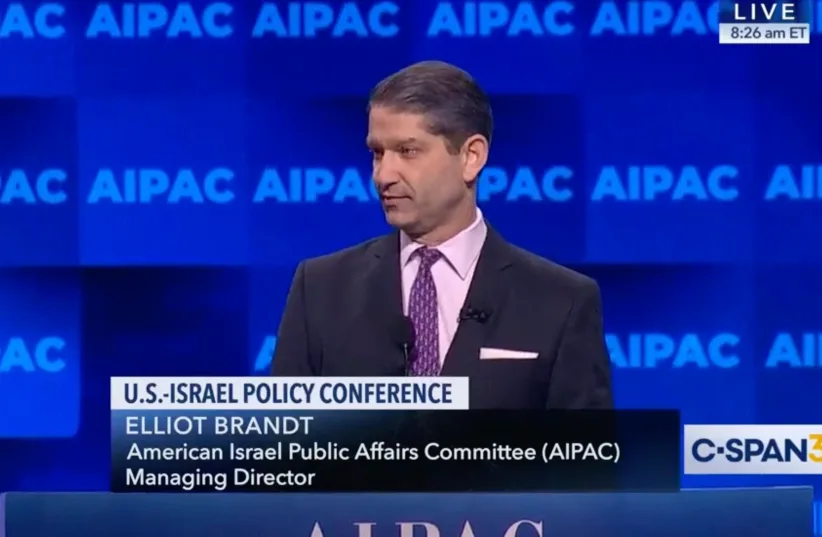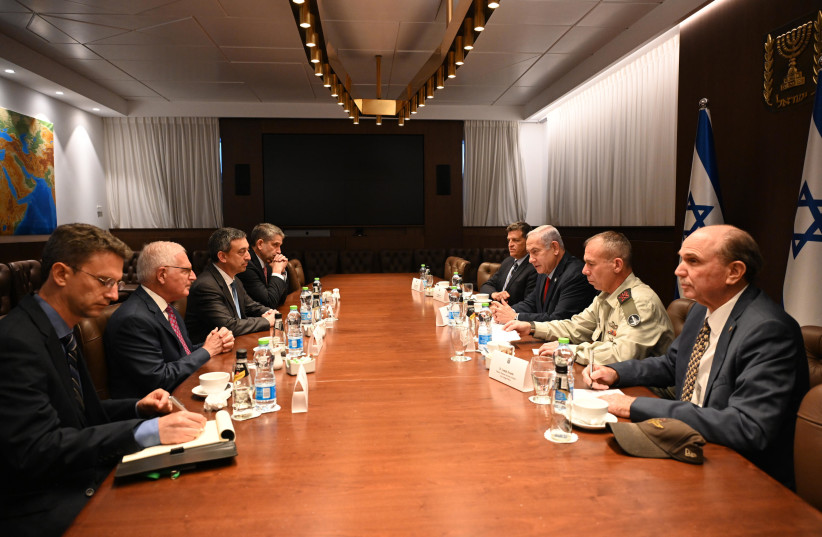(JTA) — The next leader of AIPAC will be Elliot Brandt, who has served as a senior official of the pro-Israel lobby for decades and will take the helm shortly after the November elections, as Israel faces volatile conflicts on multiple fronts.
Brandt, currently the American Israel Public Affairs Committee’s vice CEO, will succeed longtime CEO Howard Kohr, who is stepping down at year’s end after nearly 20 years leading the group. Under his leadership, the organization burgeoned and, in recent years, shifted to launching political action committees that directly fund candidates.
In a statement announcing Brandt’s hire on Tuesday, AIPAC said he “thoroughly understands the strategic challenges and opportunities facing AIPAC, possesses the skills and insight necessary to successfully lead us forward, and demonstrates deep passion for, and commitment to, our work to strengthen and expand the US-Israel relationship.”
Brandt, who became vice CEO earlier this year, graduated from Stanford University in 1990 and has spent almost three decades with AIPAC, much of that time leading offices in San Francisco and then Los Angeles. According to a 2003 profile in Los Angeles’ Jewish Journal, Brandt wrote to President Ronald Reagan as a child protesting the American sale of arms to Saudi Arabia, then a priority of Israel advocates.
He was at Stanford at the time of the first Palestinian intifada in the late 1980s, and became director of AIPAC’s Los Angeles office during the second intifada in the early 2000s. He later served as AIPAC’s managing director.
The future of US-Israel relations
Now, he will lead the lobby at a pivotal time. AIPAC has prioritized US backing of Israel’s military campaign in Gaza, including increased military aid. It has also taken aim at Israel’s critics in Congress, who are mostly progressive Democrats, and has also drawn ire from Democrats for endorsing Republicans who would not certify Joe Biden’s 2020 election victory. The lobby has also come out against Republicans who have criticized Israel and has drawn fire from figures on the far right.
What the US-Israel relationship will look like at the beginning of 2025 is unclear, from who will win the presidential election to whether Israel will still be fighting Hamas in Gaza. Israel’s government, which faces protests over the war, may also be in a state of flux. AIPAC’s statement said that Brandt would be a unifying presence as the organization enters a new and — for the issues the lobby cares about — uncertain chapter.
“Over the past nine years, he has traveled to nearly every community in the country, meeting with countless AIPAC members and effectively expanding the circle of donors engaging in our work to strengthen bipartisan support for Israel in Congress,” the statement said. “From major speeches to individual conversations, Elliot is unmatched in how he articulates our mission and motivates our membership.”

